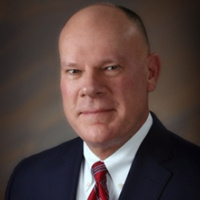Memphis Criminal Lawyer, Nebraska
Timothy P. Sullivan
✓ VERIFIEDCriminal, DUI-DWI, Misdemeanor, Felony, Visa
Experienced, Effective, Aggressive Representation
Timothy Sullivan is a lawyer based in Lincoln, NE who can assist with criminal defense, family law, immigration, and more.
Andrew J. Wilson
✓ VERIFIEDAccident & Injury, Personal Injury, Criminal, Divorce & Family Law, Wrongful Death
Andy is an Omaha native joining Carlson and Burnett as a partner with over 25 years of criminal and civil litigation experience. He began his career i... (more)
FREE CONSULTATION
CONTACTFREE CONSULTATION
CONTACTFREE CONSULTATION
CONTACTFREE CONSULTATION
CONTACTDavid B. Fischer
Criminal, Natural Resources, Administrative Law, Agriculture
Status: In Good Standing



